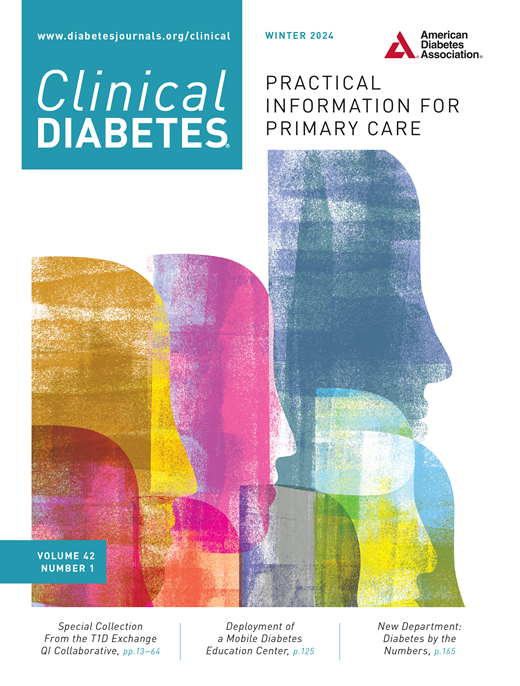Persistence to Basal Insulin Association With Improved Health Outcomes
 Insulin persistence is associated with positive health and economic outcomes, according to a study conducted by researchers at the University of Mississippi, the Pharmacy Quality Alliance (PQA), and Ohio Northern University, the results of which were published in Clinical Diabetes in December of 2023. The study highlights the promising applicability of a method to measure insulin persistence at the population level. This same method is the foundation for PQA’s Persistence to Basal Insulin (PST-INS) health plan performance measure.
Insulin persistence is associated with positive health and economic outcomes, according to a study conducted by researchers at the University of Mississippi, the Pharmacy Quality Alliance (PQA), and Ohio Northern University, the results of which were published in Clinical Diabetes in December of 2023. The study highlights the promising applicability of a method to measure insulin persistence at the population level. This same method is the foundation for PQA’s Persistence to Basal Insulin (PST-INS) health plan performance measure.
Measures of medication adherence and persistence can be used to evaluate an individual’s medication-use behaviors. Medication adherence is commonly used to evaluate whether an individual takes a medication as prescribed. However, medication adherence is not appropriate for all medications. Medication persistence assesses how long an individual consistently remains on a medication and is more appropriate for insulin. The PST-INS measure evaluates persistence by determining whether an individual received insulin refills by an expected date, which is derived using an empirical approach pioneered by Wei and colleagues. This empirical approach estimates expected refill dates for specific types of insulin using population-level prescription claim patterns. Previous studies that introduced this method demonstrated an association between persistence to basal insulin and improved health outcomes. This new study reinforced the validity of this association in a sample of commercial insurance and Medicare beneficiaries with diabetes.
Insulin persistence is associated with positive health outcomes and lower healthcare costs.
Individuals with type 2 diabetes who were persistent to their basal insulin therapy demonstrated lower hemoglobin A1c compared to those who were not persistent. Persistent individuals were also associated with fewer emergency department visits and hospital readmissions, and the association further extended to lower diabetes-related medical costs. Notably, there was no association found between insulin persistence and hypoglycemic events. This corroborates previous evidence indicating that concerns about hypoglycemia should not hinder the potential health and economic benefits associated with persistence to basal insulin.
There is a clear opportunity to close a measurement gap in the quality of insulin use.
Evidence suggests that medication adherence and persistence improve health outcomes for individuals with diabetes, though such rates remain suboptimal. The national rise in diabetes prevalence, almost doubling from 2009 to 2019, underscores the increased urgency in addressing medication use quality related to this public health concern. The Centers for Medicare & Medicaid Services (CMS) have quality measures in place to evaluate medication adherence. One of these adherence measures, stewarded by PQA and included in the Medicare Part D Star Ratings, focuses on noninsulin diabetes medications but excludes individuals who use insulin. As a result, there exists a measurement gap for monitoring the quality of insulin use affecting upwards of 30% of individuals with type 2 diabetes, including 2.5 million Medicare Part D beneficiaries. Given the evidence, PQA’s PST-INS measure represents a clear opportunity to bridge this gap in the quality of insulin use.
PQA’s PST-INS measure will be added to the Medicare Part D Display Page for 2024 and 2025.
The PST-INS measure has been included in the Part D Patient Safety reports provided confidentially to plan sponsors since the 2022 measurement year. CMS finalized the addition of the measure to the publicly reported Medicare Part D Display Page for 2024 and 2025 (calculated using data from 2022 and 2023, respectively), noting the lack of quality measures to assess insulin persistence in measurement programs. The Part D Display Page includes select quality measures and scores that are shared with the public. These measures do not contribute to health plan ratings within the Medicare Part D Star Ratings Program but provide further evaluation of Part D plans, can help facilitate quality improvement initiatives, and are publicly reported for informational purposes.
For further details on the evidence for PST-INS, refer to the full article. Additionally, learn more about PQA’s Persistence to Basal Insulin (PST-INS) measure and PQA’s measures used in CMS Part D Quality Programs.
